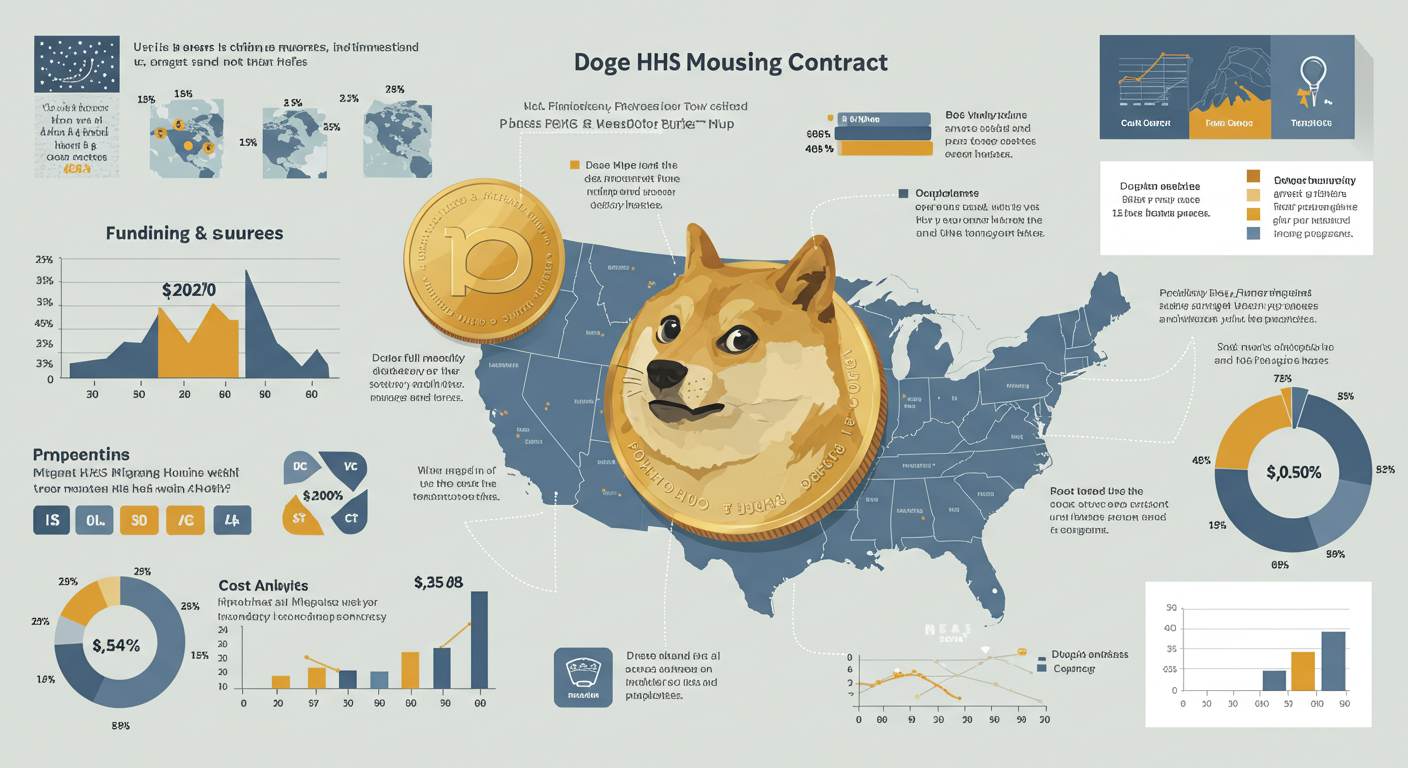The Doge HHS migrant housing contract has recently gained attention in discussions surrounding U.S. immigration policy, migrant care, and federal government responsibilities. This contract highlights the collaboration between the Department of Health and Human Services (HHS) and private contractors to provide temporary housing solutions for migrant populations. Understanding its background, objectives, and implications helps shed light on the broader challenges of balancing humanitarian care, government accountability, and public concern.
What is the Doge HHS Migrant Housing Contract?
At its core, the Doge HHS migrant housing contract refers to an agreement designed to manage housing facilities for migrants, particularly unaccompanied minors and families seeking asylum. The Department of Health and Human Services, through its Office of Refugee Resettlement (ORR), often partners with private organizations or contractors to manage shelters and housing programs.
This specific contract has attracted attention due to its scale, funding, and the complex responsibilities it assigns to contractors. It reflects a growing trend of outsourcing essential services to private entities while the government supervises compliance with humanitarian and legal standards.
Objectives of the Doge HHS Migrant Housing Contract
The contract is not merely about housing—it covers a range of essential services to ensure migrants are treated with dignity. The primary objectives include:
-
Safe Shelter – Providing immediate and secure living spaces for migrants.
-
Basic Needs Fulfillment – Access to food, clean water, and medical care.
-
Education and Social Support – For unaccompanied minors, this often includes schooling and counseling.
-
Legal Assistance Coordination – Helping migrants connect with legal aid during asylum or immigration proceedings.
-
Transition Planning – Assisting in reunification with families or placement in long-term care arrangements.
By outlining these goals, the Doge HHS migrant housing contract attempts to address humanitarian needs while ensuring efficiency and compliance.
Why Has the Doge HHS Migrant Housing Contract Sparked Debate?
Like many government contracts involving migration, this one has faced scrutiny. Critics and supporters hold contrasting views:
-
Supporters argue that the contract is necessary to ensure humane treatment of vulnerable migrants. Partnering with private contractors allows rapid response when migrant numbers surge.
-
Critics claim that outsourcing responsibilities can lead to mismanagement, lack of transparency, and even inadequate care in certain facilities. Concerns about cost efficiency and oversight often dominate the debate.
Thus, the Doge HHS migrant housing contract has become a symbol of the challenges in balancing compassion, accountability, and financial responsibility.
The Role of Private Contractors in Migrant Housing
Private contractors play a significant role in implementing housing agreements. Under the Doge HHS migrant housing contract, they are responsible for managing shelters, hiring staff, and ensuring standards of care.
However, accountability becomes complicated. Unlike public institutions, private companies are not always subject to the same levels of scrutiny. This creates potential gaps in monitoring conditions, which have fueled calls for stronger oversight mechanisms.
Financial Aspects of the Doge HHS Migrant Housing Contract
Another point of discussion revolves around the financial magnitude of such contracts. Billions of taxpayer dollars are allocated annually to support migrant housing. Critics question whether funds are being used effectively and whether private contractors profit excessively from public money.
Supporters counter this by emphasizing that operating housing facilities, especially during surges of migration, requires significant resources. The Doge HHS migrant housing contract is thus seen as a necessary investment to uphold humanitarian obligations.
Community Reactions to Migrant Housing
Communities near housing facilities often have mixed feelings. On one hand, many residents express compassion and willingness to support migrants. On the other, some fear strain on local resources, security issues, or cultural tensions.
The Doge HHS migrant housing contract plays into these dynamics, as decisions on facility locations can affect neighborhoods directly. Policymakers must navigate these concerns carefully to ensure balance between humanitarian goals and community well-being.
Legal and Ethical Dimensions
Beyond logistics and finances, the contract raises important ethical questions. Should private companies profit from humanitarian crises? Are migrants’ rights being fully protected in outsourced facilities?
The Doge HHS migrant housing contract brings these issues to the forefront, pushing policymakers and advocates to reflect on the intersection of law, ethics, and government responsibility.
Looking Ahead: The Future of Migrant Housing Contracts
As migration trends continue, contracts like the Doge HHS migrant housing contract will remain part of the national dialogue. To improve their effectiveness, experts suggest:
-
Stronger oversight and accountability measures.
-
Greater transparency in financial reporting.
-
Enhanced standards of care for migrants, especially minors.
-
Increased community engagement to address local concerns.
Such reforms may determine how these contracts evolve and whether they gain broader public trust.
Conclusion
The represents more than just a government agreement—it reflects the complexities of immigration policy, humanitarian responsibility, and public accountability. While it offers vital services to vulnerable populations, it also raises important questions about transparency, cost, and ethics.
By examining the contract’s objectives, controversies, and community impact, it becomes clear that the conversation around migrant housing is not just about logistics—it’s about the values a nation upholds in times of crisis.

